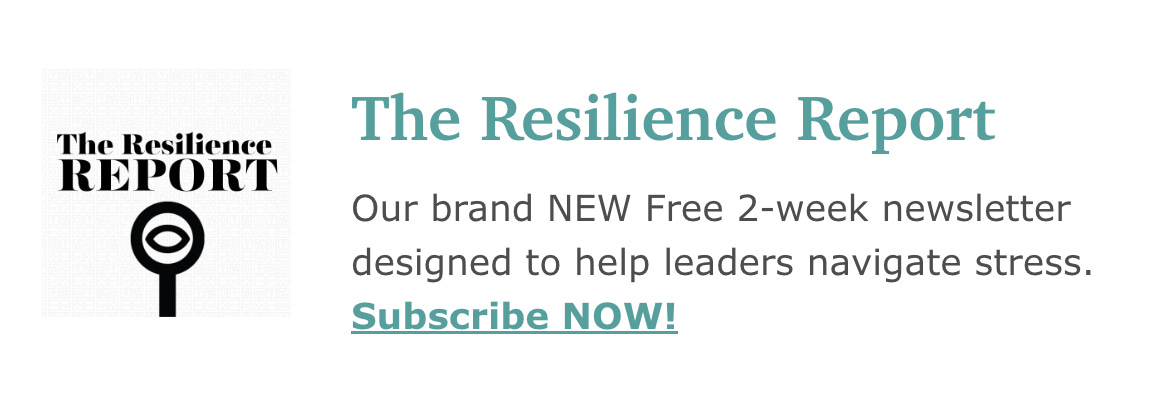The Confidence Myth: You Don’t Need More of It
What if your leadership “problem” is actually a trust issue—with yourself?
A little sneak peek into my personal discomfort/failure landscape.
I recently tried pickleball for the first time.
Because apparently, pickleball is the sport of every man/woman. It is the universal sport of FUN! Kids play pickleball. Grandmas play pickleball. EVERYONE LOVES pickleball.
So….as a 40-something professional actively working towards having a balanced and holistically great life, I decided that pickleball was in my future.
In classic Type A (Survivalist) fashion, I hired a professional to “teach me how to have fun.”
Let me tell you — it was freaking terrifying. Five minutes in, I was questioning my judgment in all things.
For those of you who have not experienced the joy of pickleball, it is LOUD, and the balls are FAST. Particularly in an indoor setting, pickleball is sensory overload. Half a dozen games are going on at once. Voices are echoing through the space. Balls are flying around you and at you.
Perhaps the most horrifying part of the experience was that, as a first-time pickleballer, your balls fly into OTHER PEOPLE’S courts — interrupting their games and forcing them to return your errant balls (which they did with incredible grace and patience).
Meanwhile, around me, other players of all ages were floating through their games — linen-clad sports angels demonstrating their agility and athletic prowess — live, real-life evidence of how fun the sport of pickleball is, and how obviously out of my depth I was.
“You’re doing great!” my instructor shouted over the noise, right as I awkwardly dodged another ball flying directly at my face like it had a personal vendetta.
And in that moment, my inner monologue lit up like it was hosting its own TED Talk:
“Don’t freaking tell me I am doing great - when I am obviously not. I do not need your coddling.”
“You’re terrible at this.”
”You look FOOL-ish”
“Everyone’s watching.”
“Why did you even think you could do this?”
It wasn’t just a game. It was a full-blown exercise in public humiliation and confidence crisis, disguised as a Thursday night hobby.
Truth time. I left that pickleball lesson feeling down and embarrassed.
But here’s what I thought about later:
THIS is the work.
THIS is the work of self-trust.
THIS is the work of resilience.
THIS is the work of confidence.
So many of us are chasing confidence like it’s a prerequisite for showing up.
“I will try when I feel more confident.”
But confidence is finicky.
It’s emotional. Situational. Mood-dependent.
It requires a lot of pre-work, and the pre-work is taking risks and being willing to suffer failure and embarrassment.
And if you’re measuring your leadership by how confident you feel in the moment… you’re going to keep questioning whether you belong in the room.
The truth?
It’s not confidence you need. It’s self-trust. Trust in the process.
What if confidence isn’t the starting point — but the end result?
What if the real power is in trusting yourself to show up even when you don’t feel polished, ready, or perfect?
Because leadership isn’t about never missing the shot.
It’s about staying in the game, even when you’re sweating, stumbling, or serving like a gremlin with a racket.
Here’s how to practice that kind of grounded, real-world self-trust (even off the pickleball court):
1. Track what’s true.
Keep a simple “proof log.” Each week, write down:
One call you handled with clarity
One moment you paused instead of panicked
One way you showed up when it mattered
2. Normalize the mess.
Leadership isn’t performance. It’s presence. It’s showing up.
Expect imperfection, and keep going anyway.
3. Make your self-talk a teammate.
Would you talk to a colleague the way your inner critic talks to you? No? Then update the script.
If you’ve been thinking, “I should feel more confident by now,”
pause right there.
Confidence isn’t something you wait for.
It’s something you build — by taking risks, showing up, and serving the ball anyway.
➡️ Hit reply and tell me:
What’s one way you showed up this week — even when you weren’t 100% ready?
Let’s build the evidence together.
With messy enthusiasm and below-average hand-eye coordination,
Anna









